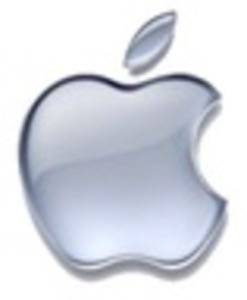Yesterday, new exemptions were added to the Digital Millennium Copyright Act (DMCA), and much of the Web and the blogosphere went a bit wild over the new legality of jailbreaking the iPhone.

Today, Apple wants to reinforce that, while no longer a potential breach of the DMCA, jailbreaking your phone will void your warranty. The thing is, restoring your iPhone to factory conditions is simple and jailbreaking your phone lets you do a lot of things that Apple, for one reason or another, doesn’t want you to do…without paying.
Jailbreaking Is “Fair Use” But Voids Warranty?
For those of you unfamiliar with the term, to “jailbreak” a phone is to hack a smartphone in order to gain access to additional features or install unapproved applications. Up until now, however, Apple claimed that jailbreaking an iPhone allowed people to install unapproved apps and should not be permitted. That claim has been rejected, with the Copyright Office saying that jailbreaking is actually fair use.
An Apple spokeswoman told Cult of Mac’s Leander Kahney that, aside from possibly degrading the user experience, jailbreaking can void the warranty.
Apple’s goal has always been to insure that our customers have a great experience with their iPhone and we know that jailbreaking can severely degrade the experience. As we’ve said before, the vast majority of customers do not jailbreak their iPhones as this can violate the warranty and can cause the iPhone to become unstable and not work reliably.”
Jailbreaking Threatens Apple’s Assets
While Apple has a valid point – that jailbreaking the iPhone and installing unverified third-party apps “can cause the iPhone to become unstable and not work reliably” – there is something bigger at stake here. Apple is saying it wants to preserve the quality of the user experience, but it also wants to protect its assets.
Apple and AT&T started offering wifi tethering at $20 per month in June. With a jailbroken iPhone, 10 spare minutes and $10, you can turn your iPhone into wifi hotspot and avoid the monthly fee. There are even other tethering apps that are completely free (though we’ve found MyWi to be reliable). How about those apps that Apple will only let you run over wifi connections, like FaceTime? Apps for jailbroken iPhones, such as My3G, allow users to run wifi-only apps over 3G. There are even apps to block Apple’s new “iAd” advertising on jailbroken phones. It’s even feasible that, with jailbreaking officially off the DMCA list of offenses, alternatives to programs like Apple’s MobileMe could enter the market at less than the $99 per year pricetag.
In essence, a jailbroken phone is something that Apple can’t closely control and it’s a threat. Apps that would never make it through the App Store, for any number of reasons, can be installed onto a jailbroken phone. Say “hello” to third-party browsers, porn, bittorrents, direct-downloaded podcasts and TV shows and more.
The reality, so far, is that only a small percentage of iPhone owners have jailbroken their phones, but the flip-flop in legality could change this. As Kahney suggests, maybe “legitimate software companies will publish jailbreaking software, instead of shady rings of underground hackers” and maybe a “healthy market for unofficial and banned apps” will come from all of this.
What About The Warranty?
Oh yes, the warranty. While Apple is quick to say that jailbreaking an iPhone will void the warranty, there’s one thing – it’s but a simple step to restore your iPhone to its original condition and have that be that. As ReadWriteWeb’s Sarah Perez writes in her latest jailbreaking guide, “if you have a jailbroken phone, you can’t get support from Apple for any issues you may have. However, jailbreaking isn’t permanent. You can revert your phone to its factory settings at any time via iTunes with no one the wiser.”
Our suggestion? Go backup all your data and jailbreak that iPhone. There’s a million reasons you should, it’s not illegal and, if you run into trouble, you can easily restore everything to a clean slate.

















